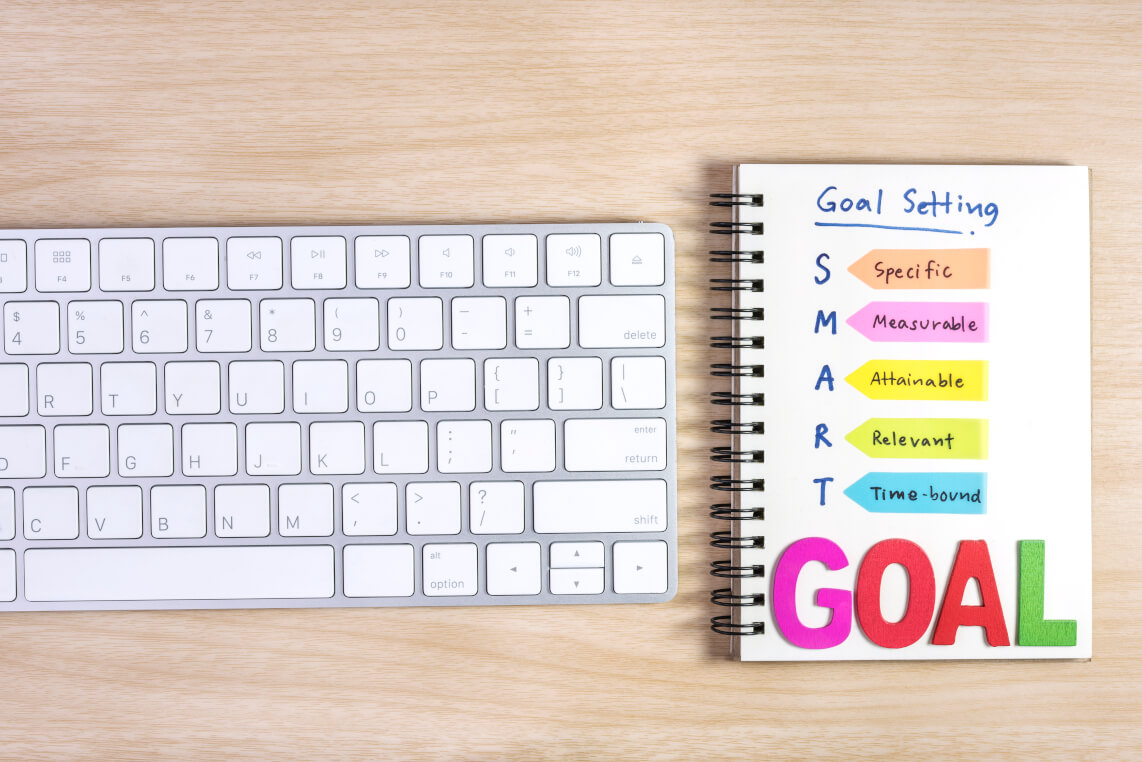
Using categories can help you manage your goals and prioritise what’s most important in each area of your life. Useful categories are physical goals, social goals and independence based goals.
One option is the SMART framework. Smart stands for specific, measurable, achievable, realistic, and timely. You don’t have to use the SMART framework, and there may another technique you come across that works for you.
Your circumstances can change over time. You might find if your goal is too specific, after some time, it’s no longer relevant or achievable.
Keeping some flexibility and wiggle room in your goals can also keep them achievable and avoid disappointment. By regularly reviewing and adjusting your goals, you can continually make progress.
Keep your goals realistic. For bigger goals, what are the smaller steps you need to reach first to achieve the overall goal?
For example, if your goal is to gain employment in hospitality. Some smaller initial goals might be needed, such as completing a training course and improving communication skills.
No matter how small or big, every improvement is something to be celebrated. This will help keep you motivated and remind you of the progress you have made.
For a more detailed guide on NDIS goal setting, see our post The All Disability Guide to NDIS Goal Setting, which outlines the importance of goal setting, and how to set the right NDIS goals for you.
We manage the financial aspects of your plan to verify that you have the supports and funding that you need. We’ll take care of all the paperwork and admin for you, so you have more time and freedom to work towards your goals, and celebrate your wins.
If you’d like to find out more, get in touch with the team today.